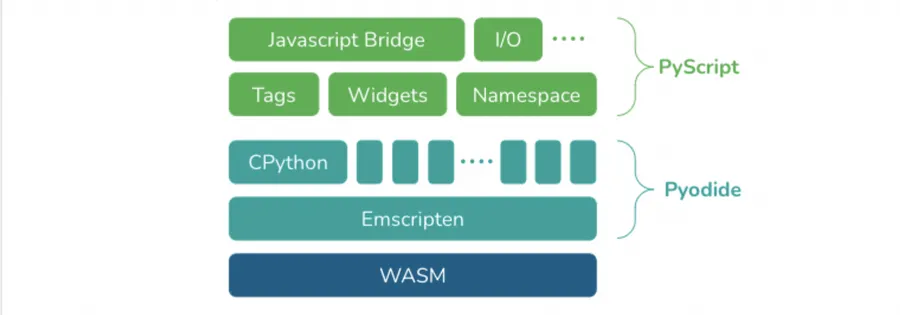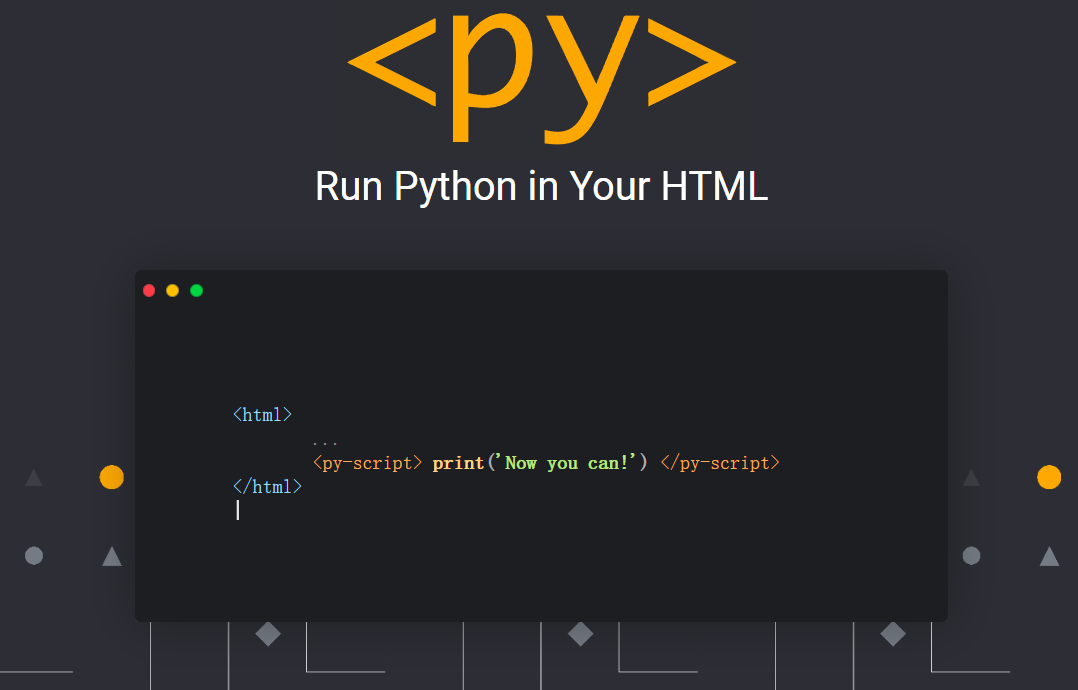Six months ago, the developer of the well-known Python distribution Anaconda launched PyScript – A framework for creating Python applications in the browser. PyScript is based on Pyodide To build, Pyodide consists of a CPython 3.8 interpreter compiled to WebAssembly, allowing Python to be run in a web browser. Pyodide can install any Python package from PyPi. Pyodide also includes a foreign function interface that exposes Python packages to JavaScript and the browser UI, including the DOM, to Python.

Anaconda says that in order for PyScript to succeed, they must make strategic investments in the project itself and its core technology dependencies, such as WebAssembly (Wasm) and the Pyodide open source project (PyScript’s preferred runtime).

Based on the above goals, Anaconda has been actively improving the technical infrastructure of PyScript in the past six months, and recently announced that it has joined the Bytecode Alliance as a formal voting member, hoping to help improve Wasm and WASI standards.
The Bytecode Alliance, founded by Mozilla, Fastly, Intel, and Red Hat, is an organization that promotes the standardization of WebAssembly. The alliance aims to improve the implementation of WebAssembly beyond the browser by collaboratively implementing standards and proposing new standards. ecology. There is an active push for WASI (WebAssembly System Interface), which enables WebAssembly to securely access system resources such as files, network, and memory.
In Anaconda’s view, Wasm plays a vital role in PyScript. Similarly, WASI also plays a crucial role in the Python ecosystem’s runtime and modules. They hope to work with the Alliance to advance these standards. Data science requires the ability to run workloads anywhere, such as a local Python environment, the browser, and the cloud – this portability is the future of computing.
In addition to joining the Bytecode Alliance, Anaconda is also strongly supporting the core open source project PyScript relies on, Pyodide, such as contributing code to its upstream and supporting ongoing development work.they think The success of Pyodide is the success of PyScript, while many projects have implemented bringing Python to the browser, Pyodide has done an excellent job of bridging development gaps in cross-language proxying, packaging, and module support.and Pyodide will be the default runtime for PyScript for the foreseeable future. Anaconda wants to support it as an important dependency and fully recognize the value it brings to PyScript.
While Anaconda is “betting” on Pyodide, it is also actively experimenting with new runtimes. Recently they showed a technical preview of PyScript based on MicroPython, experience address: https://pyscript.net/tech-preview/micropython/.

According to Anaconda, MicroPython is ideal for running in constrained environments that lack an operating system and have limited resources. When they applied MicroPython to Wasm in the default configuration, exciting results emerged:The total size of this new runtime is only 303KBwhich loads instantly and starts executing MicroPython logic in less than 100ms.
Anaconda believes that MicroPython also plays an important role in PyScript, especially in many development scenarios where loading performance is an issue. Because PyScript can be configured to support multiple runtimes, developers can choose the most suitable solution according to the scenario.
Further reading
#Anaconda #Joins #Bytecode #Consortium #Actively #Supports #Wasm #Pyodide